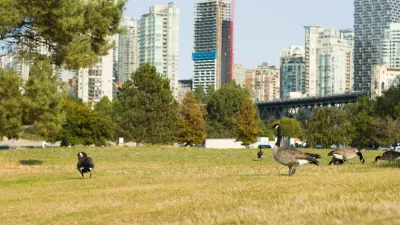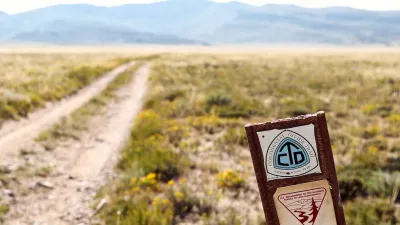This piece from Utne Reader looks at Ecuador's recent extension of inalienable rights to nature and why other countries should follow this lead.
"In September 2008, the citizens of Ecuador approved the world's first constitution to extend inalienable rights to nature. In the South American country, "Nature, or Pachamama . . . [now] has the right to exist, persist, maintain and regenerate its vital cycles, structure, functions and its processes in evolution."
Ecuador's policy makers received assistance structuring the groundbreaking eco-provisions from the Community Environmental Legal Defense Fund (CELDF), a U.S.-based nonprofit that's helped municipalities in several U.S. states enact similar "right of nature" laws. The concept is simple but inspired: Give nature rights, so that people can defend them-instead of going after eco-violators for bureaucratic infractions.
Most contemporary law treats nature as property and favors the proprietor, merely limiting the destruction of nature, rather than prohibiting it for nature's own sake."
FULL STORY: The Emancipated Earth

Trump Administration Could Effectively End Housing Voucher Program
Federal officials are eyeing major cuts to the Section 8 program that helps millions of low-income households pay rent.

Planetizen Federal Action Tracker
A weekly monitor of how Trump’s orders and actions are impacting planners and planning in America.

Ken Jennings Launches Transit Web Series
The Jeopardy champ wants you to ride public transit.

California Invests Additional $5M in Electric School Buses
The state wants to electrify all of its school bus fleets by 2035.

Austin Launches $2M Homelessness Prevention Fund
A new grant program from the city’s Homeless Strategy Office will fund rental assistance and supportive services.

Alabama School Forestry Initiative Brings Trees to Schoolyards
Trees can improve physical and mental health for students and commnity members.
Urban Design for Planners 1: Software Tools
This six-course series explores essential urban design concepts using open source software and equips planners with the tools they need to participate fully in the urban design process.
Planning for Universal Design
Learn the tools for implementing Universal Design in planning regulations.
Ada County Highway District
Clanton & Associates, Inc.
Jessamine County Fiscal Court
Institute for Housing and Urban Development Studies (IHS)
City of Grandview
Harvard GSD Executive Education
Toledo-Lucas County Plan Commissions
Salt Lake City
NYU Wagner Graduate School of Public Service




























